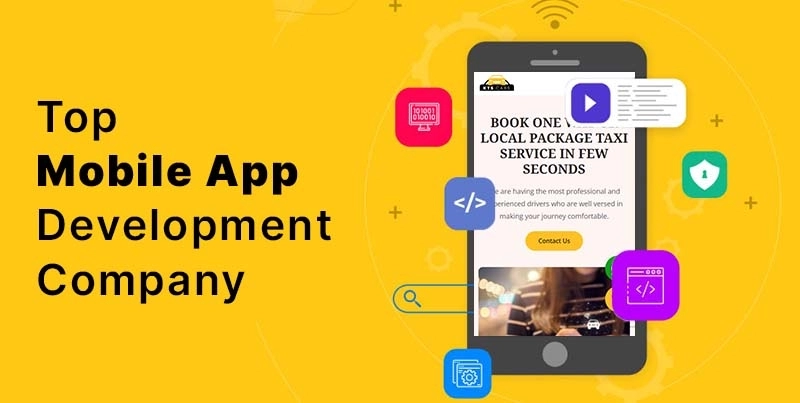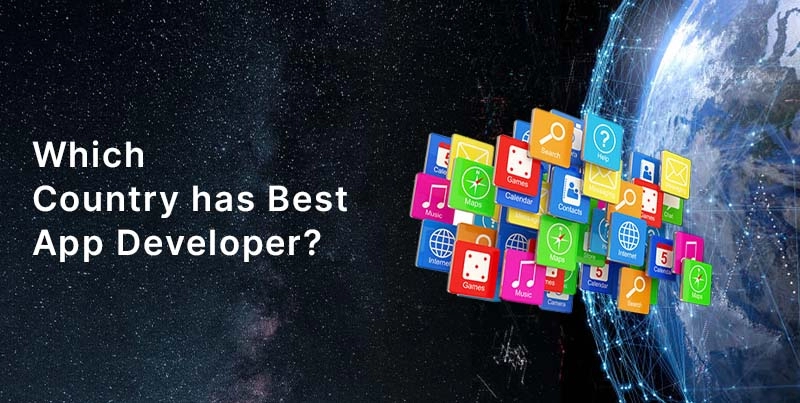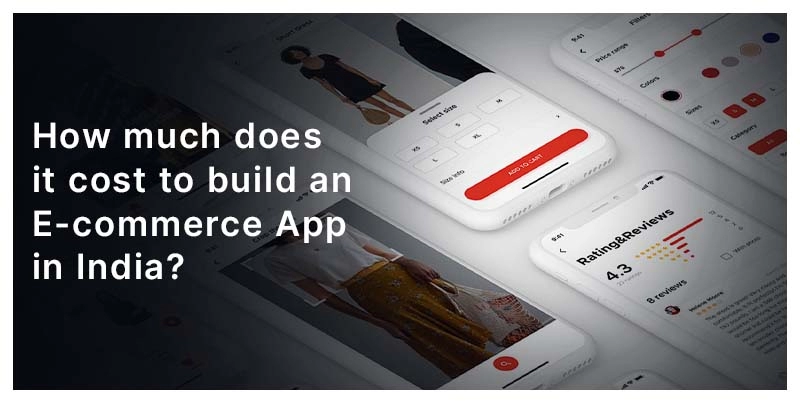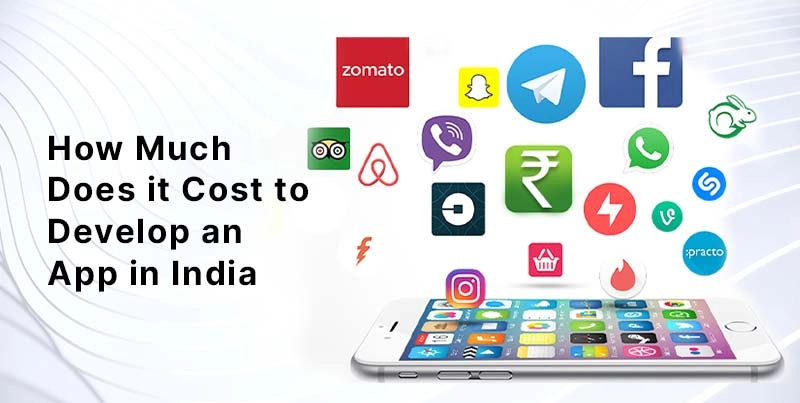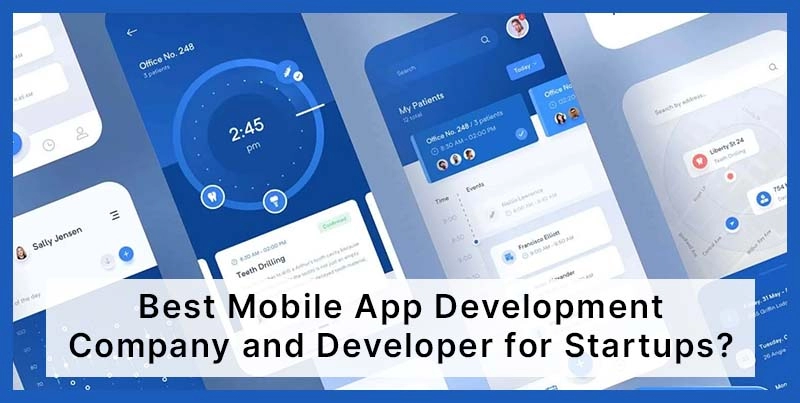Incorporating AI in Graphic Design: Discover the Benefits | Uses of AI Technologies in Graphic Design | Duplex Technologies
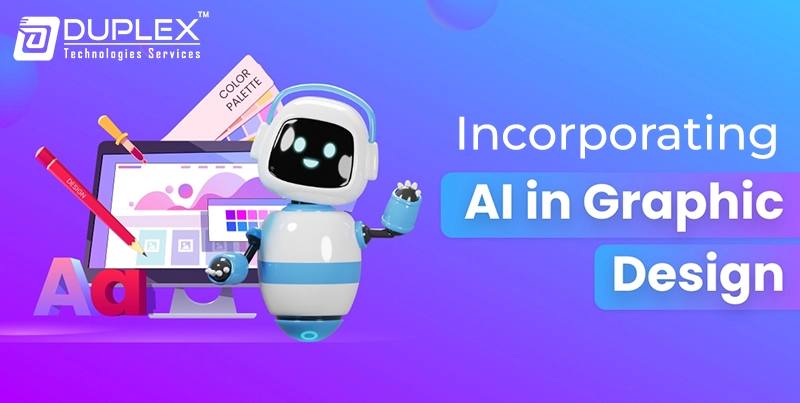
Posted By : Ambesh Mishra, Posted Date : Aug 31, 2024
Introduction: Incorporating AI in Graphic Design
Want to know how incorporating AI in graphic design benefits the modern world? Then, this blog is perfect for you. We will tell you about the future of AI in graphic design and how designers and artists can use AI technologies in graphic design to stand out from the crowd.
AI has become popular in numerous fields in human life by playing various roles such as automating tasks, improving efficiency, and offering valuable information in health, economy, transport, and education, among others. Graphic designing is one area where there is massive ongoing work with AI that is being used to develop new styles and designs, as well as repetitive work. AI tools help design professionals look for various solutions, manage tasks, and generate better imagery more effectively. In the field of graphic design, AI is being used in activities such as the selection of the best image editing style or color scheme or recommending the best fonts to be used. In this piece, we shall proceed on graphic design AI integration, its advantages, and how you can maximize on it to enhance the level of designing.
Table of Contents
Advantages of using AI in graphic design
Enhanced Creativity: AI comes up with distinctive designs, allows for the consideration of innovative thoughts and ideas, and proposes new solutions to complement human imagination. It can also break down its design styles and make new designs fit the trend.
Efficiency: Incorporating AI in Graphic Design enables the efficient handling of operations in the design industry, thus, allowing designers to spend more time on making essential decisions. This means that more time is free for more productive and creative work in organizations and businesses.
Faster Design Process: AI tools generate many design solutions within a short span of time, which is highly beneficial for increasing the pace of prototyping. Due to this efficiency in designing, there is the capability to make design choices within short periods and meet projects’s deadlines.
Personalization: graphic design AI integration personalizes designs based on a given clientele and develops graphics that appeal to a particular demographic. Through gauging user data and trends, AI can recommend elements for designs to be included, making the use of the design safe, comfortable, and conducive.
Scalability: Due to its capability to process large volumes of design tasks, AI is suitable for large project work and content mills. This makes it easy for designers to handle different projects at the same time and still maintain the best quality in their work.
Time-saving: Using AI technologies in graphic design reduces repetitive work, which consumes the time of designers by several hours, giving designers the chance to perform higher-value work. Having less time to be spent on routine activities frees designers to think creatively and outside of the box.
Applications of AI technologies in graphic design
Image Editing
Software that utilizes AI in graphic design reduces the amount of time that designers spend in cropping, resizing, as well as color correction, among other tasks. These tools can also erase objects, smoothen the skin or images, and add filters. Sophisticated algorithms are used to control the movements of the interface and obtain realistic-looking movements.
Design Generation
AI technologies in graphic design create design ideas, logos, icons, and graphics that are tailored to the user’s requirements of style, theme, and colors. This in turn helps designers to generate new concepts and, at the same time, increases the speed of designing. Compared to the designs created by an AI, there is more control and the ability to optimize the design to the client’s requirements.
Colour Suggestion
graphic design AI integration provides a number of suggested colour combinations and colour palettes that fit in the desired design concept. These suggestions may be relevant and suited to create an appeal that may elicit an emotion, pass a message, or even represent a certain brand. AI can also consider color harmonizing as well as contrast.
Typography
AI recommends fonts for increased appeal and legibility to give the text a professional look. Typography assistants, also governed by AI, can generate better recommendations for font selections, line spacing, and text alignments, among others.
Layout and Composition
Incorporating AI in graphic design helps in the placement of elements, symmetry, and the overall placement of the layout of the design. Other capable uses of AI are where layout decisions involve design aesthetics, symmetry, and any aspects that rule negative space.
Pattern and texture
AI provides patterns, textures, and gradients for designs, and people can incorporate unlimited options in those areas. AI can also use textures and patterns on certain spots or on the entire artwork and compositions.
Graphic design AI integration: AI software and tools
- Autodesk Dreambook: A design tool in which a user can give some details, and the system produces several designs accordingly.
- Canva: A design platform coupled with artificial intelligence, which takes the work of layouts, deciding on color combinations, and fonts off designers' hands.
- Adobe Fresco: Software that is used in drawing and painting and with the assistance of artificial intelligence in creating proper strokes and effects.
- Prisma: An app that relies on artificial intelligence to filter photos and turn them into art in the manner of a specific artist.
- Deep Dream Generator: An application that employs artificial intelligence to create images that are seemingly hallucinogenic out of images uploaded by the user.
Best practices for incorporating AI in graphic design
For incorporating AI in graphic design, it is crucial to set goals and select the proper tools. Be aware of what AI can and cannot do and retain human supervision to enhance designs produced by the AI system. Partner with AI as your co-designer, and not a competitor, and ensure that you are well informed on any developments in the way AI works. Think about ethical concerns and use sources of high-quality input data. Try and test for the introduction of new strategies to achieve a certain level of effectiveness and efficiency, automation, and creativity. So by adopting graphic design AI integration, designers can use AI in ways that will ultimately help their efficiency, creativity, and the quality of designs they put out to the market with beautiful and unique visuals.
Graphic design AI integration: combining imagination with technology
Artists can use AI technologies in graphic design tools as creative tools, attempting to implement AI-generated images and styles in their work and relieve themselves from the time-consuming routine of object recognition. They can incorporate the use of AI in graphic design and their imaginations through the use of artificial intelligence-powered design software like Adobe Fresco or Prisma to get natural strokes, textures, and styles of painting with ease. AI can also help with 3D modeling, animation, and rendering by helping artists give life to their ideas. Creatives can choose to adopt AI as a tool in their creative process to make the work more efficient, come up with unique, creative concepts, and use the tool to convert their ideas into vivid, realistic visuals that can leave a lasting impression on the target audience.
Conclusion
Therefore, incorporating AI in graphic design brings changes to the entire concept of creativity, which means that AI enhances and boosts human creativity and imagination, eliminates time-wasting repetitive work and other constraints, accelerates the prototyping process, and results in creativity and stunning graphics. With the development of AI technology, more space for development has been opened in the field of graphic design in the future, including creativity and productivity improvement, use of personalized and dynamic designs, efficient work and collaboration, and new opportunities for business models and revenue generation. Thus, graphic design AI integration becomes one of the most promising ways that the graphic design industry can develop, advance, and grow, which in time changes the way we communicate, engage, and experience visual and graphical work, or how human creativity couples up with artificial intelligence and creates masterpieces.




